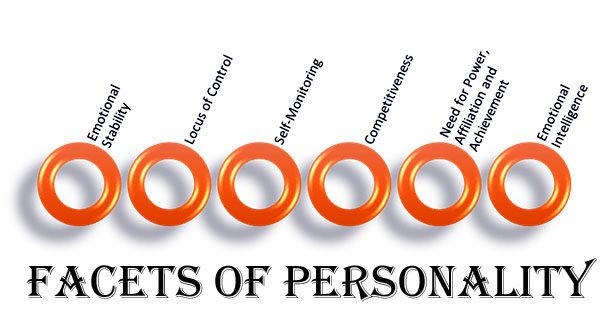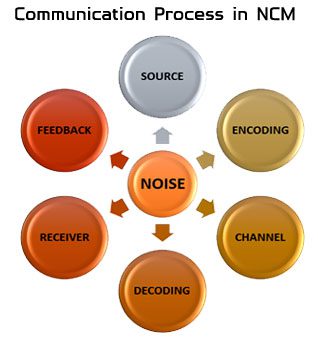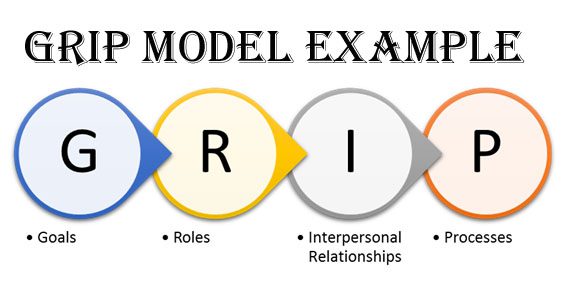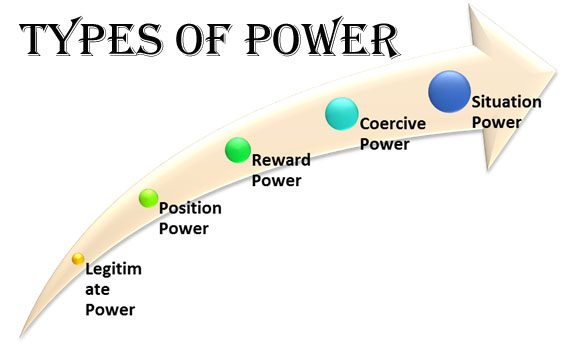Kabul Restaurant Islamabad Case Study
Kabul restaurant is well known restaurant in Islamabad and holds a prestigious reputation from last 30 years. The restaurant is known for its Afghani traditional food, well designed infrastructure and best quality.
The management of Kabul restaurant is really active on the inspection of food and its quality. They have a team for the inspection of the food to check. The incoming and out coming of the stock is being check by the inspection team perfectly but from last few weeks the stock was not that much sufficient which it was before the demand of meat was more and in warehouse the stock was less to meet the standards. That leads the negative publicity of the restaurant and defamation of the management.
Kabul restaurant was randomly inspected by the manager Mr. Mukhtar with his inspected team to find out that why the stock is not sufficient in warehouse. They were not able to find the issue. In restaurant the manager Mr. Mukhtar come to know about a new and interesting thing. One of the workers in the restaurant came to the manager and complained about the warehouse manager that basically the manager takes come of the stock to his home and use them personally. Now no one knows that this is right or wrong, but the complaint was quite authentic.
Now this made everyone shock that how this can happen because the warehouse manager Mr. Mukhtar was working for last 8 years. This had a bad effect for the customers who were coming to the restaurant because the demanded for the food related to meat and all the food in Kabul restaurant had meat as an essential.
The manager was quite confused, and he went to the warehouse manager again to check the paper and investigate that from where this issue in being evolved but he failed to do so. Then this issue was finally discussed with the general manager Mr. Ali Manager and Mr. Mukhtar called to discuss the problem. He was called by the general manager to his home. The manager came to home and discussed that the stock is not sufficient in the restaurant and he was not able to find out the problem. He also said that he came across new news that a worker in the restaurant said the warehouse manager was found to steal the stock from the warehouse and using it personally while checking the records the warehouse manager found financial records clear.
After discussing the entire problem with the general manager, it was decided that general manager will call the warehouse manager to come to his home for meeting and to find out what is wrong. General Manager asked the warehouse manager, he said that all the stock is good, and he founds clear .and the supplier from whom they are purchasing had a relation of 20 years. The warehouse manager was quite sure that the stock will be good because there was no complain from last 20 years. The quality and other standards were meeting perfectly.
The general manager after getting evidence against the warehouse manager reacted hard. He asked him to tell him the reason behind all this because the restaurant was going in loss. The warehouse manager was sure that there is nothing wrong in his work and certainly reacted on it. The general manager suspended him for this and said to leave the restaurant till the matter is not resolved and if he found that he is involved than they will arrest them for doing this bad deed. After suspending him the general manager gives the time of 48 hours to find the problem and gave him the clues that go to the suppliers and find out that is the stock is sufficient or not. The other thing he suggested was to find and CCTV video to find that is the stealing issue of the stock by the warehouse manager is true or not. After going into the deep inspection, the manager came back to the general manager and explained the basic reason of the problem.
The issue basically was that the suppliers were not giving the stock up to that level where the demand falls. They were getting the amount properly but the stock which was supplied was less. This happened because of the blind trust that the warehouse manager had on them because of the long-lasting relation with them. The CCTV video was analyzed and that was clear that the warehouse manager was right. He was not doing anything wrong. The worker had personal issues with the warehouse manager that’s why he wanted to spoil the reputation of the warehouse manager. Later on, the manager was found clear and again called him back to job. The worker was fired. This was important to have a good relation in any organization to have a good reputation and also is very important for the reputation of the organization.
Questions
- Describe the conflict and negotiation that have discussed in the given case?
- Describe the facets of the personality of both manager and their teams?
- By reading the case can you briefly explain the negotiation style and negotiation temperament that are followed by the general managers in order to resolve the conflict?
- Develop the sociagram for the following given case, and discuss the communication process do you think the communication process was efficient?
- Explain the grip goals for both managers that are involved in the conflict and negotiation?
- Can you explain the powers that are used in the case?
- Briefly explain the persuasion theory and rules of negotiation?
- Do you think that negotiation process have been followed by the general manager while negotiating the conflict?
Analysis and application of Negotiation & Conflict Management
Defining the Conflict
The immediate conflict is between the warehouse manager and general manager of Kabul restaurant. Hotel manager and warehouse worker were also involved in the conflict and issue. The food inspection team visited the kitchen for discovering the loss of sale in recent days. Closing down was main issue and it gave rise to the conflict between these two parties. Food inspection authorities were not coming on the same ground with the Kabul restaurant and the conflict was prolonged for some days. Both parties have their own competencies and skills and have different personalities. Team members were also directly involved in the conflict. The manager of Kabul restaurant was eager to know who was responsible for the decline in sales and not meeting the customer demand properly.
Defining the Negotiation
Negotiation here in the given case is required between the general manager and warehouse manager because they are the one who were handling the conflict and will have to negotiate in order to settle the situation. The managers and hotel workers are the one who are directly involved in the negotiation and are following different styles and approaches in order to negotiate with each other by considering parties need, wants and goals. But General Manager and warehouse manager are directly involved in the conflict and negotiations and are following the different approaches, styles and strategies to negotiate.
Facets of personality
Emotional stability
The inspection team of Kabul restaurant had the high level of emotional stability. But some of the team members during the situation become low on the level of emotional stability like one of the team member act rationally and try to remove the expiry on the cookies and breads. And the general manager after getting the order of sealing the bakery and restaurant become emotionally at one point. But the overall team was on the high level of emotional stability.
On the other hand, food authorities team member was lying on the high level of emotional stability. They acted according to orders given to them by the higher authorities of sealing the restaurants etc. and they did not become emotional or act emotionally while closing down the restaurants and they were stick to their orders.
Locus of Control
The team of Serena hotel possesses the external locus of control. They believe that what happen to their organization was meant to be happen and they cannot do anything about the sealing of their bakery and restaurants and they don’t have any control over the situation because it’s not in their hand to stop the food inspection authority.
On the other side the other party i.e. food authorities possess internal locus of control they believe that they can control everything according to them and everything is in their hands, so they can easily seal the restaurants or the bakery of hotels.
Self-Monitoring
General Manager of the Kabul restaurant along with his team is high on the self-monitoring because they try to adjust their behavior that was suiting the situation best and in their dealing with the employees.
While the food inspection manager and team seem to be lying in some middle of self-monitoring because they were consistent on their behaviors and attitude at time during the situation and sometimes, they were high on self-monitoring during solving the conflict or while negotiation
Competitiveness
General manager of the Kabul restaurant has the characteristics of the type A personality as he always wants his work to be done on time, he is always impatient of doing the work and don’t want to compete from others. He only wants to focus on his own work and growth and is motivated towards his work. Along with that the food inspection manager also possessed the characteristics of type A.
Focusing on the team members so some of them have the characteristics of type B and some have type A personality characteristics.
Need for Power, Affiliation and Achievement
Need for power, affiliation and achievement are the components on which the both the conflicting teams and their manager were high.
The general manager and the food inspection manager individually were high on them. Like they want to have the power in their hand in future and they are focusing on their achievements e.g. they tend to seek responsibilities and want to get the solution and to have the credits for that solution. Along with that they also are high on affiliation because they seem to be seeking pleasant relationship with other team members.
Emotional Intelligence
Warehouse department members seems to be comparatively high on the emotional intelligence because they are able to work under the stressful condition and make efforts to negotiates without being emotional.
Negotiation Styles
There are five main negotiation styles that the conflicting teams usually follow to negotiate with each other. The negotiation style which is being followed varies from person to person or sometimes on the situation of conflict. The five negotiation styles are:
- Accommodating
- Avoidance
- Competitive
- Compromising
- Collaborative
The team of the Kabul restaurant was collaborative in their negotiation style because they want the conflict to be resolved and was finding a way that will serve the needs of both parties. They collaborate with the food inspection authority team and fulfill all their terms and condition and called the meeting in which they try to settle the situation. At the time of stolen food management of hotel was very collaborative. So along with the general manager other team members and other department that were participating in the negotiation and conflict were following the collaborative approach.
On the other hand, the food inspection manager and his team were competitive in their negotiation style. Food inspection team was curious and did not want to lose goodwill. After giving 48 hours’ time period they were able to discover the truth and successfully negotiated with the warehouse manager.
Communication Process
This process is being followed in a very effective manner during the negotiation between the two conflicting parties.
The source was warehouse department which seems to be sending its message to the investigating team and to its customers. The form in which they encode their message was through complaints. The channel choose by them is by giving the presentation to the investigating team after three days and in order to communicate with the manager was verbal. Their message was then decoded by the upper management team. After getting the information and decoding general manager gave feedback and the bakery and restaurants were opened after three days. The effective communication rules are:
- Listening
- Speaking
- Watching
- Filtering
In the given case it can be analyzed that some rule was broken during the communication if these rules of effective communication were followed then the conflict had been handled in the more appropriate way. The rule which were broken during this negotiation was:
- Talk less and listen more.
- Do not stop listening before the other person finishes because you think you know what he or she is going to say.
- Do not assume that you know what the other person means.
- Do not interrupt.
- State your understanding and appreciation for the other’s position.
- Do not be offensive or rude.
- Do not be afraid to be silent.
- Showing positive gestures to solve the conflict.
So, these are the rules which shouldn’t have been broken to keep it an effective communication. If these rules were not broken, then the conflict can be solved there and then but it took three days to get things settle and to negotiate.
Goals in Negotiation
Grip Model
- The letter G stands for the substantive gain you desire. In this case both the parties had their own respective goals. The hotel management wanted to know the stolen meat and those responsible for it.
- The letter R stands for relationship interests or relational goals. The hotel management wanted to build long term relations with their customers and so they resorted to a collaborated approach toward solving the conflict. Whereas the employees wanted to have good relations with each other.
- The letter I stand for the self-esteem and face-saving needs and goals. As the general manager was at top position, he was unaware of what was actually going inside the hotel management.
- The letter P stands for the process goals. Under this the management of Kabul restaurant wanted the conflict to proceed in a constructive manner. Cooperative processes were initiated by the hotel management; high importance was given on ensuring a constructive and collaborative solution so that both the parties can achieve its respective goals.
Perception in Negotiation
Attribution Theory
Consistency
General manager Ali and warehouse manager Mukhtar are consistent in hard work and in providing good quality work at the same time and they were both consistent in resolving the conflict and the situation.
Consensus
General manager takes work lightly out of the whole team.
While sometimes warehouse manager struggles to get recognized and feels it difficult to cope up with working environment of the group.
Distinctiveness
General manager and warehouse manager both are efficient and quick in all work-related matters and in resolving the conflict and their overall teams were also very efficient in doing their work and performing responsibilities.
Culture and Gender Differences
As Pakistan is considered to be a high context culture, Kabul restaurant also comprises the same culture which is again reflected in the personality of the employees. In the overall conflict nonverbal and subtle cues played a role in giving hype to the issue. Moreover, general manager and warehouse manager followed the individual effort, benefit and recognition.
The relationship of cultural dimensions to the personality explains the fact that the culture has a strong impact on the personality and vice versa. As the team members who emphasis on time scarcity are consistent with producing Type A personalities. Moreover, such people following high context are more willing to use their social power and status.
As the team for inspection comprises of different people from various backgrounds, cross-cultural differences are some of the key problems affecting the negotiation process. Again, gender differences are something that is essential in the organization. Males and females both pursue a different style of negotiation which affects the overall process and here there is no such issue because both the managers are male.
But power distance is more in our cultures so as General manager has more power as compare to hotel manager, so he was being rude during the negotiations with the warehouse manager.
Types of Powers
Legitimate power
The food inspection team had legitimate power and they had a legal warrant which showed their authority. They had real and perceived power both.
Position power
Both the parties had their respective position powers. The general manager had position power in his area of expertise whereas the warehouse manager had his own position power and was practicing his power on the hotel management.
Reward power
The inspection team had high reward power as they could affect the hotel reputation and could influence them to take certain actions regardless of the fact that whether they are willing to do that or not.
Coercive power
The inspection team was also practicing coercive power as they were following a competitive negotiation style and had the power to do something which was unpleasant for the hotel management.
Situation power
This situation was a disadvantage for the Kabul restaurant and the situation was in favor of the warehouse manager he was holding a strong position. The balance of power in the situation was not to the benefit of the hotel management.
Persuasion
CREEK Model
Common Ground
During the negotiation the general manager make the statement that will fulfill the both parties and that will be beneficial for both of them. He asked them to provide evidence and gave him ultimatum.
Reinforcement
During the negotiation warehouse manager provides in order to persuade them that conflict should be resolved on these bases as well.
Emotional Connection
The general manager was trying to make the emotional connection with the other party because it is easy to persuade other party if emotional connection is formed. For all this warehouse manager was playing the role of good listener and he was clearly and carefully listening the other party.
Empathy
General Manager was suspicious to the feelings and emotions of the warehouse manager and he was clearly listening to all the viewpoints and was not interrupting him during his discussion.
Key
During the negotiation both the parties were trying to build trust on each other, because this helps both the teams to persuade each other and to solve the issue as soon as possible.
Conclusion & Recommendations
After carefully analyzing the whole situation and the conflict and applying the concepts of the negotiation and conflict management we came up with the idea that the manager of Kabul restaurant was been too early on a decision to fire warehouse manager because this was last option that can lead to resolve the conflict. Since the evidence was not enough not to decide. Though inspection team was very collaborative in negotiating with the restaurant workers they did not wanted to lose their reputation among their customers. Few days were very critical for Kabul restaurant they were rapidly losing their customers and their demand
- Moreover, the inspection team should have been done more to discover the causes of decreasing the supply and should have avoided this from occurrence.
- They should not break the rules of communication like they should listen carefully to others watch and analyze carefully and then act.
- There should be solid reasons on the basis of which they should take some action rather than misinterpretations and baseless issues.
- The managers and other team members should not act emotionally during the negotiations. And powers should be used accordingly.





